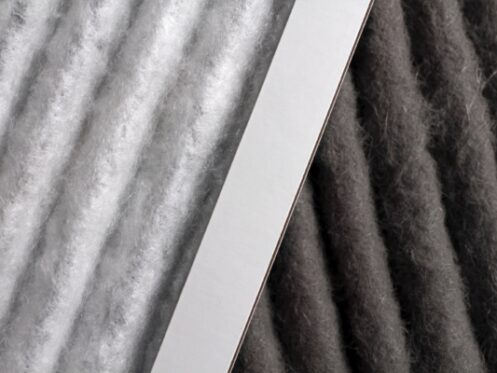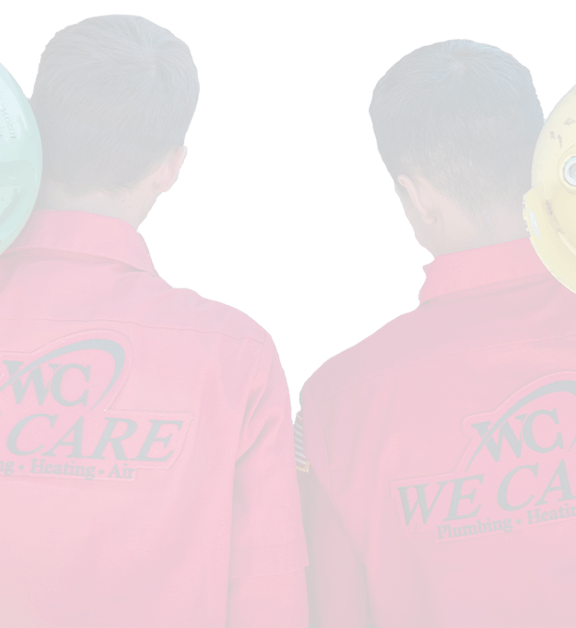Many Orange, California residents want the air quality inside their homes to be healthy and clean. However, according to World Health Organization (WHO) reports, indoor air pollution is responsible for more than 2.5% of the global disease burden.
Often, the air people breathe in their homes is not as clean as they think. When the windows and doors are shut, stale air gets recycled through the HVAC system and is distributed throughout the home. It is not surprising that, in some areas, indoor air quality can be many times more polluted than outdoor air quality.
In an attempt to clean the air in their homes, people will use an air filter and air purifier. Although these terms are often used interchangeably, they are different devices, each with a unique purpose and ability to produce results.
Contact An Air Quality Specialist Today!
What Is an Air Filter?
Air filters remove pollutants, airborne particles, and microorganisms from the air. In an industrial setting, air filters are used to maintain the quality of materials and products and protect equipment from damage caused by air particles. Air filters are used in clean room environments to minimize air particle count. Gas and exhaust stacks use air filters to clean their emissions before releasing them into the atmosphere. Air filters are used in residential and commercial spaces, including lavatories, clinics, and hospitals.
An air filter can effectively remove aerosols, dust, viruses, dirt, mold, bacteria, and toxic gases from the air. These pollutants, especially when they are found in a residential setting, can exacerbate or aggravate respiratory illnesses, allergies, skin diseases, and other illnesses.
How Does an Air Filter Work?
Residential air filters are built into your HVAC system. They allow air to pass through them while trapping microscopic pollutants. They are usually placed between the furnace and the air duct return. This guarantees that the air circulating in your home is clean.
The basic concept of an air filter is a device that allows air to flow freely through the ducts while restricting the passage of certain particles. Most air filters are made from mesh, fiberglass, pleated paper, or active carbon. They function like a sieve, preventing particles that are larger than the holes in the filter from passing through while allowing airflow.
What Are the Most Common Types of Air Filters?
Activated carbon filters are good at trapping small particulates. They are very porous and typically function as a secondary filter or a prefilter.
HEPA (High-Efficiency Particulate Air) filters can trap up to 99.7% of particles as small as 0.3 µm. HEPA filters are used in residential and commercial environments. They are so good at filtering the air that medical professionals use them.
Fiberglass filters are the most common type of filter on the market. They are disposable and trap pollutants in layers of fiberglass materials. An electrostatically charged fiberglass filter can catch more particles than one that is not electrostatically charged.
Pleated air filters have folds increasing the filtration surface area. They sit in a cartridge or frame that keeps the pleated material in the shape of the filter. A pleated filter generally will have high filtration efficiencies and will do a great job at improving indoor air quality. Pleated filters are usually made from pliable materials like cloth, polyester, cotton, or paper.
What Are Air Purifiers?
Like an air filter, an air purifier is designed to remove pollutants from the air. They may improve the quality of indoor air.
Absorbent purifiers use an activated carbon filter to absorb airborne particles. They rely on the porous nature of the activated carbon filter to trap molecules.
Ionic air purifiers generate an electric field that positively or negatively charges particles, also called ions. These ions then adhere to bacteria present in the air. The purifier attracts ions with the opposite charge, eliminating them from the air. UV light purifiers use ultraviolet radiation to sterilize certain microorganisms, rendering them harmless.
How Do Air Purifiers Work?
Air purifiers employ various techniques to trap pollutants depending on the model type. Some will use an electrical charge, some will use ultraviolet germicidal light, and others will use a series of filters and fans to clean the air.
In most cases, a powerful fan will suck in impure air through a vent usually situated at the rear of the unit. The dirty air is pulled through several filters, beginning with a fine mesh to trap large particles, and then it is forced through a more robust filter like a HEPA filter.
The clean air travels through a deodorizer to remove any foul smells. In some units, the air passes through a UV filter or a negative ion process to eliminate any surviving bacteria. Finally, a powerful fan pushes the purified air back into the room.
Why Are Air Purifiers Beneficial?
Air purifiers can help individuals suffering from hay fever, seasonal allergies, and other sinus-related problems. They can be beneficial for those dealing with frequent asthma flare-ups.
Most homes are covered in pollutants. These pollutants get disturbed as people walk on the carpet or use the furniture. As bacteria become airborne, people become vulnerable to inhaling them.
Air purifiers are good for cleaning pollutants from the air as they filter it. They work well against tobacco smoke, dust mites, mold, fibers, fungi, and other microorganisms.
There is a limit to how well an air purifier can clean the air. Allergens like dust mites, mold, and pollen are heavier than the air, so they might sink to the ground and get trapped in the carpet or floor coverings. Air purifiers cannot do much in these circumstances as they can only work to trap microbes if they are airborne.
Air Purifier vs. Air Filter: Which One Is Right for You?
Although HVAC system air filters can capture larger dust and dirt particles from the air, they are primarily designed to make your HVAC system more efficient and improve its performance. Consequently, they cannot guarantee perfectly clean indoor air but can improve indoor air quality. To get the best results, choosing the right HVAC air filter for your HVAC system is crucial based on your desired filtration levels and the manufacturer’s guidelines.
If you want to improve your indoor air quality and enhance your HVAC system’s performance, you may consider investing in an air purifier. While HVAC filters can be effective, a stand-alone air purification appliance is essential if you have pulmonary health concerns or want the cleanest possible air in your home.
Working With Qualified Plumbing and HVAC Technicians
At We Care Plumbing, Heating, & Air, we are a premier Southern California plumbing, heating, and air conditioning company committed to going the extra mile. We proudly offer 24-hour day, seven days a week emergency assistance to help with various indoor comfort services. We are proud of the volunteer work we do with our community and the fact we’ve attained and maintained an A+ rating with the Better Business Bureau and NATE and Environmental Protection Agency certification.
Our services include HVAC installation, maintenance, and repair. We install ductless mini splits, perform air quality testing, and offer plumbing repair, maintenance, and inspection. Our offices are located in Orange, Murietta, and Temecula. Contact We Care Plumbing, Heating, & Air today and see what working with professionals who truly care feels like.
Related Articles
Healthy Indoor Air
Why Is Air Quality Testing So Important?
Indoor Air Quality During the Winter: Tips for a Healthy Home
Does Opening Windows Increase Indoor Air Pollution?
How Air Scrubbers Can Help You Breathe Easier
The Ultimate Guide to Air Purification vs. Air Filtration
Dry Air and Cracked Skin: Indoor Humidity and Your Home Comfort
How Can Air Balancing Help with Hot and Cold Spots?
Author Bio: Rusty Cochran
 Rusty Cochran is the President of We Care Plumbing, Heating and Air Conditioning. We Care began humbly, operating in his family’s living room. Under Rusty’s strong leadership, We Care has grown from 2 employees to over 200 employees. We Care Plumbing, Heating and Air has gained recognition across the HVAC industry, receiving numerous awards and certifications, including being named the ACCA Contractor of the Year, The Map Presidential Award several times, Angie’s List Super Service Award, NATE certification, and multiple Dave Lennox Awards. LinkedIn Profile
Rusty Cochran is the President of We Care Plumbing, Heating and Air Conditioning. We Care began humbly, operating in his family’s living room. Under Rusty’s strong leadership, We Care has grown from 2 employees to over 200 employees. We Care Plumbing, Heating and Air has gained recognition across the HVAC industry, receiving numerous awards and certifications, including being named the ACCA Contractor of the Year, The Map Presidential Award several times, Angie’s List Super Service Award, NATE certification, and multiple Dave Lennox Awards. LinkedIn Profile






